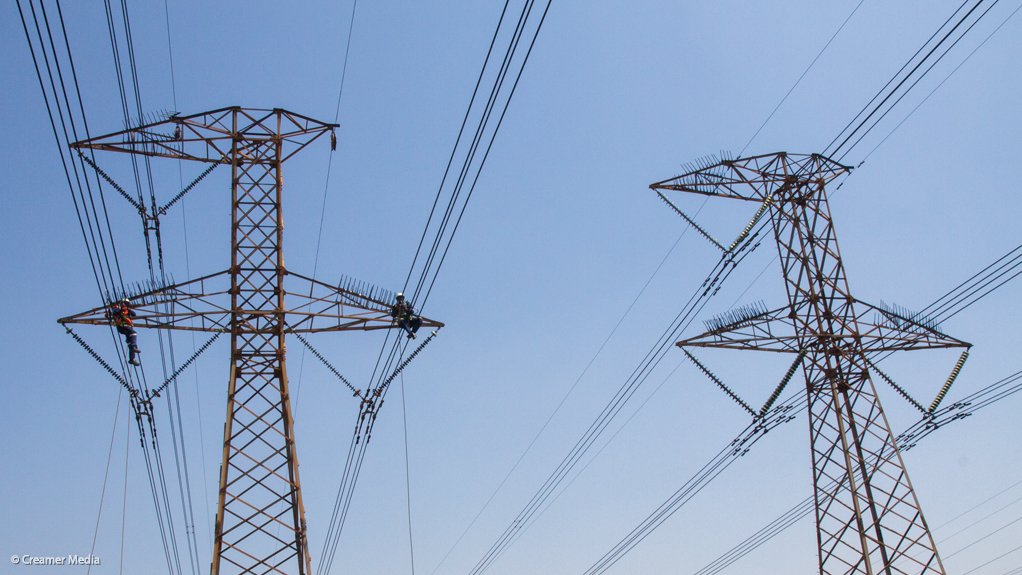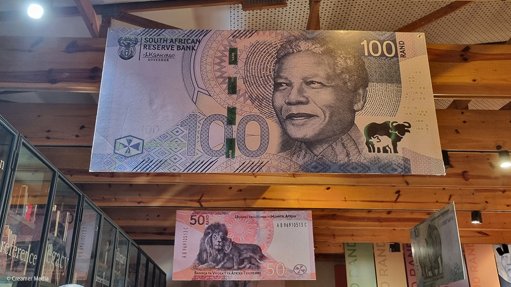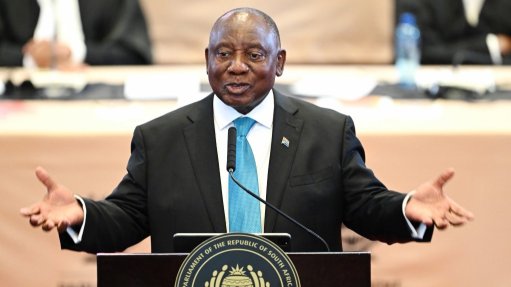IPP Office insists ITP criteria ‘not exclusionary’ as local industry raises procurement framework concerns
A joint letter sent to the Independent Power Producer Office (IPP Office) on September 23 by organisations representing local industry, raised several concerns about the prequalification process launched ahead of the inaugural Independent Transmission Project (ITP) procurement programme. In the letter, the Powerline and Substation Association, the Steel and Engineering Industries Federation of Southern Africa and the Manufacturing Circle described the technical and financial criteria included in the request for qualification (RFQ) as onerous, and also not enabling of participation by local industry. Following the RFQ submission deadline, which was also September 23, the IPP Office confirmed that 17 entities had made submissions to be prequalified to bid to build the 1 164 km of powerlines and 2 630 MVA of transformation capacity across seven corridors allocated to the first phase of the ITP procurement. It is not immediately clear from the responses, however, what role local industry will play in manufacturing the components required for the projects and in building the infrastructure.
Having confirmed receipt of the letter, the IPP Office told Engineering News Editor Terence Creamer that it would be responding to the three organisations, while also stressing that it was committed to ongoing engagements with all ITP stakeholders, including local industry. In addition, it provided responses to several other questions raised about the potential of the ITP programme, together with the larger Transmission Development Plan, to stimulate domestic industrialisation. The questions posed by Engineering News and the responses provided by the IPP Office are outlined below:
Engineering News: Would you agree that the scale of the capital expenditure required on the grid represents an industrialisation opportunity? And could you quantify the opportunity and indicate how the ITP component of that build programme will seek to leverage this potential?
IPP Office: Absolutely, through the country’s ten-year electricity grid infrastructure development drive, about R440-billion ($25-billion) of investment is expected to be injected into the South African economy, thus creating a huge industrialisation opportunity for South Africa. It is government’s view that by introducing the ITP procurement programme we have an unprecedented and accelerated opportunity to propel South Africa’s industrialisation and reignite local manufacturing, localisation and industrial development. The estimated quantum of the ITP procurement programme’s contribution to the overall electricity grid infrastructure investment will be determined as part of the medium- to long-term ITP procurement programme pipeline that will be announced by the Minister next year. It is also worth mentioning that the ten-year electricity grid infrastructure development will enable the addition of 30 GW and 56 GW of new electricity generation capacity by 2030 and 2034, respectively, thus leveraging another industrialisation opportunity in the electricity generation space.
How would you respond to the letter’s claim that the technical and financial qualification criteria in the RFQ can be satisfied only by a handful of international companies, with no single South African company likely to qualify?
As this is the first of its kind private procurement programme for South Africa, the first phase of the ITP programme is designed to leverage the experience of developers who have designed and constructed transmission infrastructure projects within the ITP framework. Having regard to the need to ensure that the programme leverages on this past experience, the technical pre-qualification criteria required that any member of the respondent should demonstrate past experience of having undertaken such projects itself or of having contracted either a third party to perform the functions of an engineering, procurement, and construction (EPC) contractor and/or operations maintenance of transmission infrastructure projects within the ITP framework. Such criteria is not exclusionary but rather seeks to ensure that as a country we are able to leverage on prior experience of transmission infrastructure projects within the ITP framework, to ensure that the ITP programme will be a success. This is further a bankability issue as lenders will be reticent to lend in circumstances where at least one of the project sponsors does not have a proven track record. To ensure local participation, the RFQ required respondents to ensure that there is a minimum 49% South African entity participation. Furthermore, the financial requirements do not exclude participation by local South African companies. The requirements do not exclude local participation as international and local companies are encouraged to form partnerships upfront as contemplated in the RFQ.
Could you provide some clarity on how the Department of Electricity and the IPP Office intend approaching the issue of local industry participation, besides through equity participation?
The RFQ contemplated that the requirements for, amongst others, local industry participation will be set out in the request for proposal (RFP). These will be incorporated in the department’s ‘Specific Goals’ in line with the provisions of the Preferential Procurement Policy Framework Act and its regulations as part of the competitive bidding requirements.
If the main way of achieving this will be through partnerships, please clarify what type of partnerships are envisaged and how these will be facilitated?
Respondents to the RFQ were required to set up a consortium for purposes of responding to the RFQ which also includes requirements on at least 49% South African entity participation to be pre-qualified which was necessary to secure the participation of local participants. Additional details and qualification criteria in respect of the bidding consortia, which would include project structures, will be set out in the RFP stage. As part of this, proposals may include local ownership and shareholding in the project company or consortia and subcontractors, as well as sub-contracting of the construction, maintenance and operation and the financing elements.
What steps will be taken to ensure the domestic partners in a consortium are active rather than passive participants?
The Department has sought to ensure that there will be opportunities for local participants as set out in the economic development objectives for the programme which include, amongst others:
- Local Manufacturing, Localisation and Industrial Development;
- Participation of historically disadvantaged individuals, including black women-owned businesses in the value chain wherein there would need to be an indication of the opportunities for equity participation, contracting and subcontracting of work to historically disadvantaged individuals in the development and operation of projects;
- Job Creation, with emphasis on employment opportunities for South African citizens, particularly black people (including black women and black youth), and individuals from local communities where the projects will be implemented;
- Skills Development, focusing on training and upskilling opportunities that address the needs of the transmission sector; and
- Enterprise and Supplier Development, including support for emerging enterprises, especially those based in local communities and within the supply chains of the Project Company and Contractors.
Will any contractual obligations be put in place to ensure that the lines and substations are manufactured locally and that domestic contractors are involved in building this infrastructure?
All specification and other ITP procurement programme related requirements can only be communicated (simultaneously to the market) once the department’s governance approvals are concluded. Suffice to say that these requirements will be consistent with applicable public procurement prescripts. In keeping with the approach that has been adopted on the IPP programme, the Specific Goals which bidders make under the competitive bidding elements will be incorporated as contractual commitments under the implementation agreement with the department.
Under which legislative and regulatory regime is the ITP being procured? In other words, which preferential procurement framework will be applied in the execution of this programme?
The legal framework applicable to preferential procurement is the Constitution and the Preferential Procurement Policy Framework Act (Act 5 of 2000) and 2022 Preferential Procurement Regulations.
How do you see the localisation rules evolving in subsequent RFPs?
This will be determined with reference to the outcomes and lessons learnt from the first phase of the ITP programme. Furthermore, guidance will be taken from the department’s policy objectives on economic development as they evolve. We also continue to monitor progress on the new Public Procurement Act 28 of 2024 which sets a positive direction for the application of local content designations in future procurement.
Article Enquiry
Email Article
Save Article
Feedback
To advertise email advertising@creamermedia.co.za or click here
Announcements
What's On
Subscribe to improve your user experience...
Option 1 (equivalent of R125 a month):
Receive a weekly copy of Creamer Media's Engineering News & Mining Weekly magazine
(print copy for those in South Africa and e-magazine for those outside of South Africa)
Receive daily email newsletters
Access to full search results
Access archive of magazine back copies
Access to Projects in Progress
Access to ONE Research Report of your choice in PDF format
Option 2 (equivalent of R375 a month):
All benefits from Option 1
PLUS
Access to Creamer Media's Research Channel Africa for ALL Research Reports, in PDF format, on various industrial and mining sectors
including Electricity; Water; Energy Transition; Hydrogen; Roads, Rail and Ports; Coal; Gold; Platinum; Battery Metals; etc.
Already a subscriber?
Forgotten your password?
Receive weekly copy of Creamer Media's Engineering News & Mining Weekly magazine (print copy for those in South Africa and e-magazine for those outside of South Africa)
➕
Recieve daily email newsletters
➕
Access to full search results
➕
Access archive of magazine back copies
➕
Access to Projects in Progress
➕
Access to ONE Research Report of your choice in PDF format
RESEARCH CHANNEL AFRICA
R4500 (equivalent of R375 a month)
SUBSCRIBEAll benefits from Option 1
➕
Access to Creamer Media's Research Channel Africa for ALL Research Reports on various industrial and mining sectors, in PDF format, including on:
Electricity
➕
Water
➕
Energy Transition
➕
Hydrogen
➕
Roads, Rail and Ports
➕
Coal
➕
Gold
➕
Platinum
➕
Battery Metals
➕
etc.
Receive all benefits from Option 1 or Option 2 delivered to numerous people at your company
➕
Multiple User names and Passwords for simultaneous log-ins
➕
Intranet integration access to all in your organisation





















